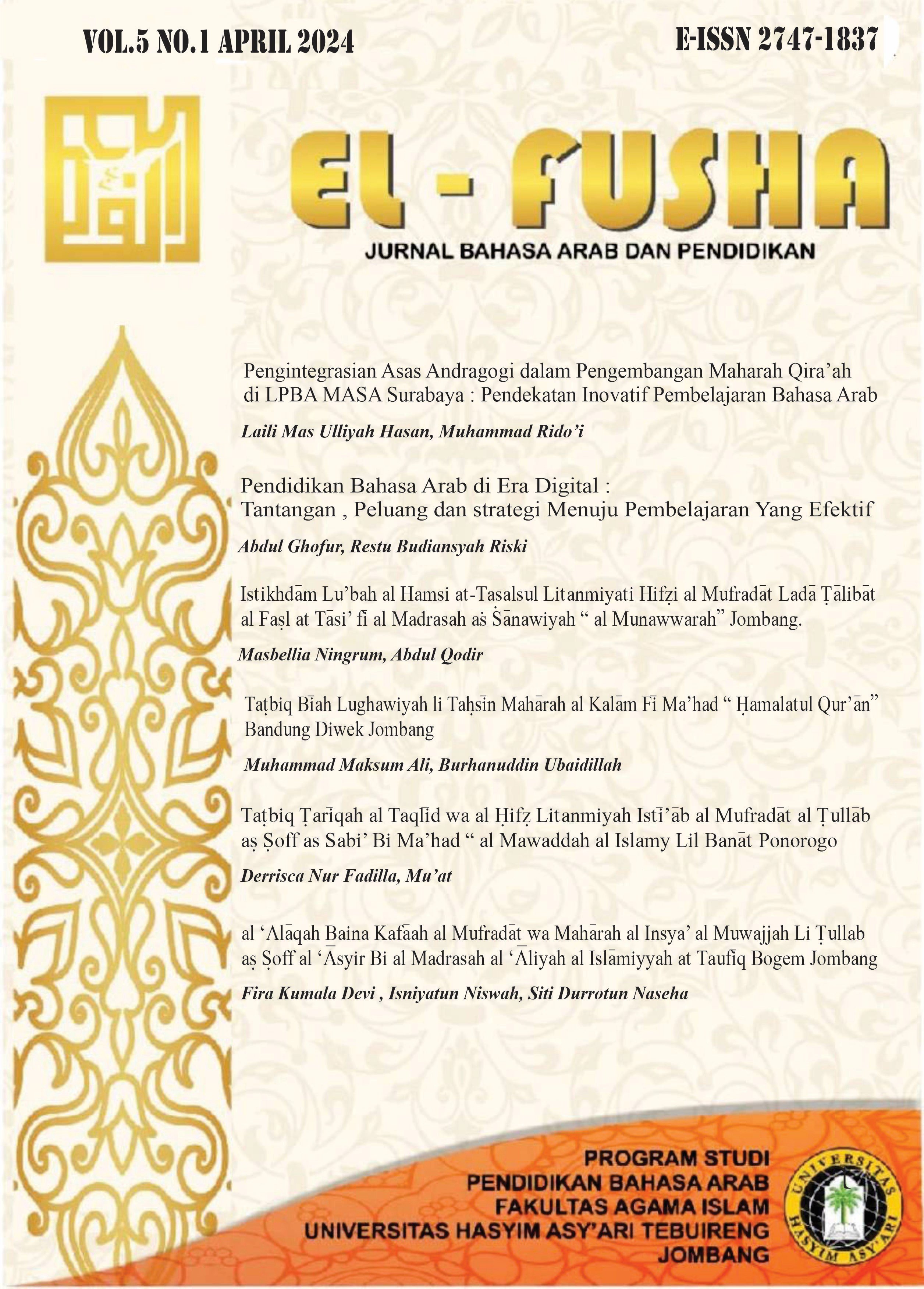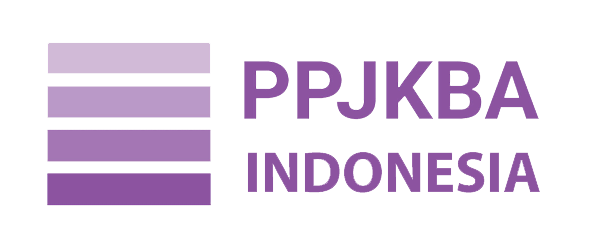Tat}biq T{ari>qah al Taqli>d wa al H{ifz} Litanmiyah Isti>’a>b al Mufrada>t al T{ulla>b as} S{off as Sabi’ Bi Ma’had “ al Mawaddah al Islamy Lil Bana>t Ponorogo
DOI:
https://doi.org/10.33752/el-fusha.v5i1.6701Kata Kunci:
Memorization Methods, Memorization, VocabularyAbstrak
This research was conducted to determine the application of mimicry memorization methods to develop mastery of Arabic vocabulary in class VII students at the Putri Al-Mawaddah Islamic boarding school, Ponorogo. This study uses a qualitative method. The research informants were female students at the Putri Al-Mawaddah Islamic boarding school in Ponorogo, Department of Biology, Language and professors at the Language Supervision Agency. The data collection techniques used are interview, observation and documentation methods. The validity of the data uses triangulation and data analysis consisting of data collection, data reduction, data presentation, and drawing conclusions. The results of this research indicate that efforts were made to develop understanding of Arabic vocabulary using mimicry memorization methods for class VII students at the Putri Al-Mawadda Islamic boarding school in Ponorogo by holding Arabic extracurricular activities to increase the amount of vocabulary, as well as speaking activities to practice their skills. students speak and test the extent of students' vocabulary understanding, apart from that it also has a mandatory program for using Arabic. in everyday life at the institute. Schools can help students understand vocabulary. Obstacles faced by students in developing understanding of Arabic vocabulary include students' lack of interest in learning Arabic, students' difficulties in memorizing and remembering the vocabulary given, students' lack of courage, and students' lack of self-confidence. The solution in providing vocabulary is to use mimicry memorization methods, as well as holding extracurricular activities to improve Arabic language learning. The results of the mimicry memorization method in increasing vocabulary understanding are the development and improvement of language, speaking skills, increased vocabulary, and increased love for Arabic.
Unduhan
Referensi
Aziz Fakhrurrozi, Modul Pembelajaran Bahasa Arab, (Jakarta Pusat : Diktorat, 2012).
Albi anggito dkk, metodologi penelitian kualitatif,(Jawa Barat: CV jejak, 2018)
Jepri Nugrawiyata, Pembelajaran Kosakata Bahasa Arab Di Madrasah Ibtidaiyah, Universitas Islam Negeri Maulana Malik Ibrahim Malang.
Abdurrochman, Strategi Pembelajaran Kosakata Bahasa Arab Bagi Non Arab, Universitas Islam Negeri Raden Intan.
Khusnul Wardan, guru sebagai profesi, ( Yogyakarta: deepublish, 2019)





